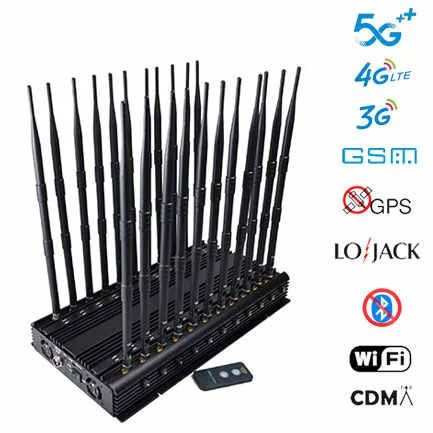
Interference with cell phone signals is illegal in the United States under the Communications Act of 1934 and is considered property theft. Here's a link for anyone who wants to read it: The Communications Act.
The FCC(Federal Communications Commission) expressly prohibits the operation of any jamming devices that interfere with licensed radio networks, such as cellular frequencies, PCS, GPS, and police radars.
The FCC notes that cell phone jammer could prevent you from making 911 or other emergency calls, posing a serious threat to public safety. It's against federal law to operate one. Most importantly, exemptions do not apply. This is true even for businesses, educational institutions, or other private sector institutions.
Consumers are not allowed to use cell phone blockers at home. Local law enforcement agencies may obtain exceptions under strict authorization from federal law enforcement agencies. The use of cellular jammers in the United States can result in significant fines (thousands of dollars in fines).
One notorious example was a man in Florida who was slapped with a hefty fine for using a cell phone jammer on public transportation with the intention of interfering with other commuters' signals because he couldn't take it anymore.
Owning and using one can even lead to jail time. Although this is important, as long as you use it privately in your home or car, it should be safe.
Well, most countries follow the same rules: fines and criminal penalties for violating laws against cell phone jammers.
Australia
The ACMA(Australian Communications and Media Authority) has made it clear that it is illegal to use, supply or possess a mobile phone or GPS jammer or amplifier in Australia.
You may not use, provide, or possess a cell phone jammer because it "contributes to criminal and terrorist activities." It's the best they've found.
Unlike other major countries, India has a specific provision because it states that private sector organizations or individuals cannot procure or use such equipment in India.
The Cabinet Secretariat has developed a "Interference Policy" on its website, stating that standards have been developed for the acquisition and use of signal jammers by states/Federal Territories, defence forces and police.
Under the FTDR Act 1992, mobile phone jammers are restricted items and can be purchased upon presentation of DGFT's licence to import them into India.
According to the policy, this is to "prevent random proliferation of jammers and ensure that installed cellular jammers do not unduly or unintentionally interfere with existing mobile phone networks."
Under the Wireless Telegraphy Act 2006, any person who intentionally interferes with radio communications, such as radio communications, commits an offence.
If you are found guilty, you may be sentenced to up to 2 years in prison and/or a fine not exceeding the legal limit, or both.
OfCom warns that consumers are strongly advised not to use devices that interfere with radio communications as they could "cause you to miss a call and, at worst, make it easier to commit criminal acts or even put someone's life at risk".
Under the RadioCommunications Act, it is illegal to import, manufacture, sell, possess and use jamming devices that interfere with cellular frequencies in Canada.
You could face up to a year in jail or a $5,000 fine. According to the statement on ic.gc.ca, only law enforcement agencies can import radio equipment that interferes with radio communications.